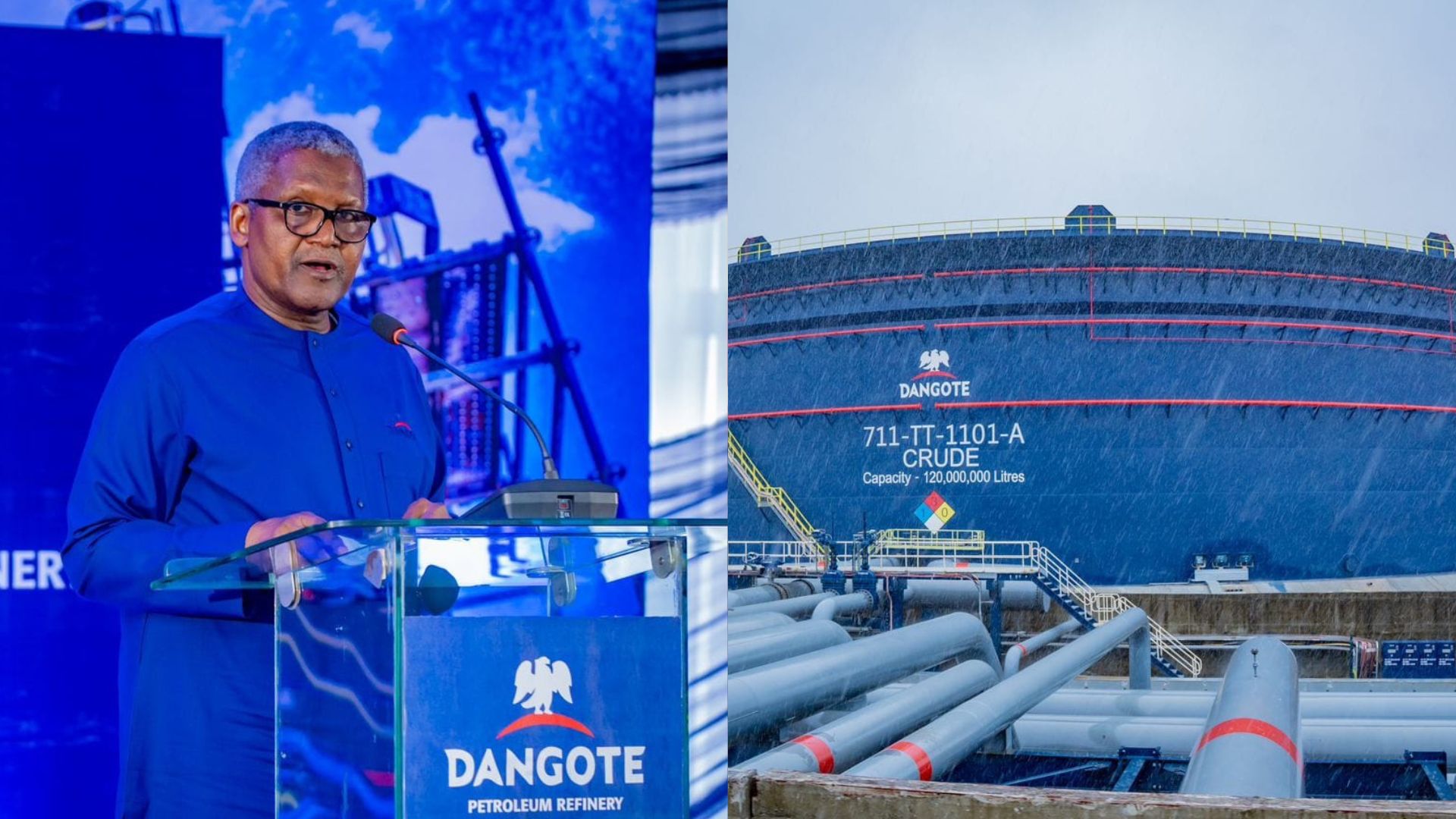
Africa’s richest man, Aliko Dangote, has said that now is the ideal time for Nigeria to end its fuel subsidy, as gasoline production from his refinery is expected to ease pressure on the country’s weakened currency.
In an interview with Bloomberg Television in New York on Monday, the business the mogul said “Subsidy is a very sensitive issue. Once you are subsidizing something then people will bloat the price and then government will end up paying what they are not supposed to be paying. It is the right time to get rid of subsidies.”
Despite being Africa’s largest oil producer, Nigeria has long depended on fuel imports due to its four state-owned refineries falling into disrepair, plagued by poor maintenance, outdated technology, and operational inefficiencies.
As a result, the government has been paying hefty subsidy for decades to keep fuel prices artificially low for its citizens when it imports.
However, upon taking office in May 2023, President Bola Tinubu removed Nigeria’s long-standing fuel subsidy, a move that worsened the country’s already dire cost-of-living crisis and sparked widespread protests.
The subsequent surge in inflation prompted a temporary reinstatement of the subsidy. However, in early September, the government made another attempt to phase out the subsidy by easing the cap on gasoline prices, though they remain below true market rates. The Nigerian government said fuel subsidy is projected to reach N5.4 trillion by the end of 2024.
The Dangote Refinery offers hope of ending these costly subsidies, which have been a breeding ground for corruption and reducing Nigeria’s reliance on imported refined products.
Aliko Dangote, whose refinery can either export fuel or sell it locally, noted that while the decision on subsidies lies with the government, ending fuel imports would significantly ease pressures on the Nigerian currency.
Despite reforms intended to liberalize the naira and revive Nigeria’s economy, the currency has depreciated by about 70% against the US dollar. Currently trading at over 1,500 naira per dollar, it is now one of the worst-performing currencies globally.
The shortage of dollars in Nigeria’s foreign exchange market continues to exert downward pressure on the naira. This issue is further exacerbated by the need to pay for imported gasoline in dollars, intensifying the currency’s struggles.
“Petroleum products consume about 40% of our foreign exchange,” Dangote said, adding that fuel from his refinery, which started supplying gasoline on Sept. 15 to the state-owned oil company for domestic sale, “can actually stabilize the naira.”









